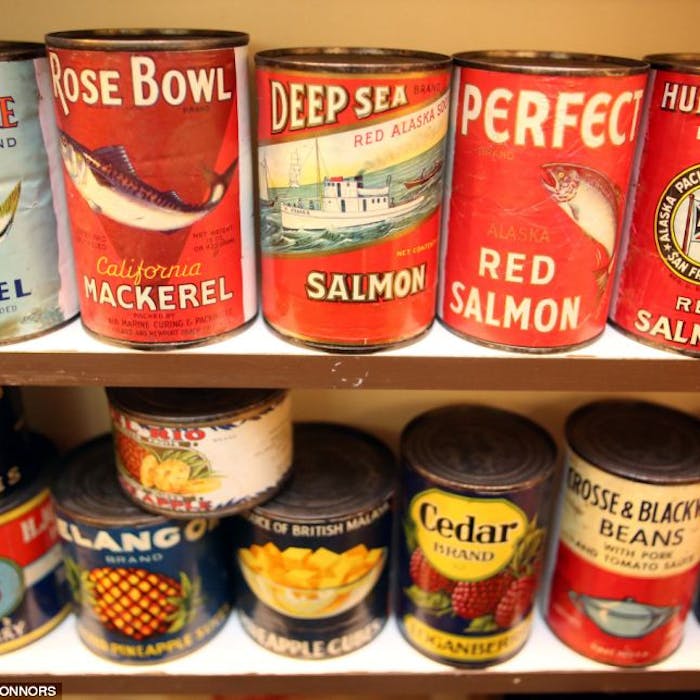
The Tin Can - first made in England 1810
That ubiquitous and useful object - the tin can - came into existence remarkably early. English merchant Peter Durand patented the invention of the tin can for food preservation in 1810. It probably saved many a sailor's life in the Royal Navy, and, perhaps, sometimes killed them too ...
It was clear immediately that Durand's invention would be of great use to seafarers. He sent several cans on a six-month voyage with the Royal Navy to test the preservation technique.
Several members of the Royal Society and the Royal Institution examined the food upon its return, and found that it was perfectly preserved.
Durand did not pursue food canning himself and sold his patent in 1812 to two other Englishmen, Bryan Donkin and John Hall for £1,000. Donkin and Hall set up a commercial canning factory and by 1813 were producing their first canned goods for the British army.
In 1818, Durand was the man who introduced tin cans to the United States by re-patenting his British patent there.
Tin cans were taken on board John Franklin's doomed Royal Navy expedition to find the North-West Passage in 1845. It has been suggested that lead poisoning from early canning techniques caused or contributed to the loss of all men aboard, most of whom mysteriously disappeared. Autopsies on the few frozen bodies that have been discovered reveal high levels of lead. The truth of the expedition's fate, though, remains uncertain.
Further reading
Links to external websites are not maintained by Bite Sized Britain. They are provided to give users access to additional information. Bite Sized Britain is not responsible for the content of these external websites.
